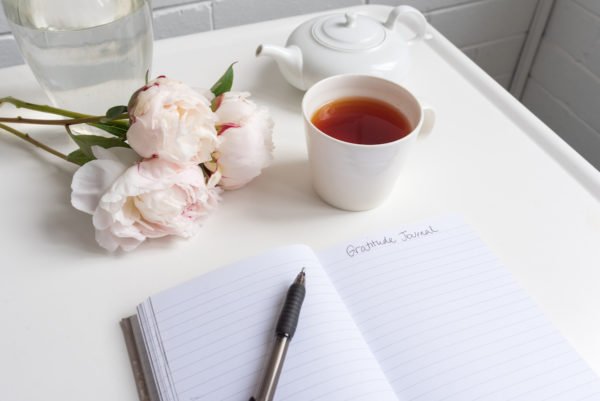
Guilt-Free Habits to Reduce Stress after a Demanding Week

Ever felt like you just can’t unwind after a demanding week? Stress builds up over the course of a long week, and it’s natural to go home, prop up your feet, eat a pint of ice cream and binge-watch a Netflix show. After a while that gets old though, plus it kills your body. You’re not doing any favors for your overall health.
You’re entitled to your guilty stress-relief pleasures, but when you step up to a slightly healthier choice, you allow yourself more kindnesses and longer-lasting peace of mind and heart. Here are 10 better habits to relieve work stress.
Keep a Journal
Research reveals journaling offers many benefits to your overall health, as you set aside time to invest in yourself and reflect on your day. While clarifying your thoughts, you also strengthen your immune cells when you journal. Writing keeps your left brain busy, which frees up your right brain to create and process emotions. You can integrate journaling into your morning and evening routine or even into your workday.
Organize your journal any way you wish and write about any topic. Keep a gratitude or success journal to focus on the positive and propel your career. For example, keeping a success journal helps you track your work accomplishments. You can describe how you overcome pressures and exceeded employer expectations. These descriptions will help boost your confidence and lower your stress levels when on a deadline, and you’ll be organized when you pitch a project or campaign for a raise.
Exercise
Reduce your couch potato time, and get out and stretch instead. Take time for a walk to decrease stress. Exercising pumps up your endorphins and can relieve symptoms of anxiety and depression. Try moderate levels of activity around 150 minutes per week to get the most out of the benefits. Exercise builds your confidence to handle issues and gives you more control over your mind and body.
Get Obsessed With Ginger
You know ginger as a powerful stomachache reliever, but ginger also calms stress and enhances brain function to make you more focused. You get a two-for-one special.
Prepare more Chinese, Japanese and Indian dishes to make the most of the sensory experience of consuming ginger. Include it in your smoothies when you order at your favourite health food eatery.
Avoid Processed Foods
Resolve to eat more whole foods instead of processed foods. Foods rich in white flour and refined sugar spike insulin levels, which release stress hormones. So avoid fried foods, junk foods, preservatives and artificial sweeteners.
Listen to Calming Music
Music has calming powers and makes you want to dance. You listen to music to focus on work and at the gym, so use it to calm your heart and mind as well. Music can relieve symptoms of depression and prevent burnout. Music therapy has improved the quality of life for many cancer patients, too.
Spend Time With Loved Ones
You’re busy and don’t have as much time to spend with friends and family as you’d like. You need to make the time. When you’re all work and no play, the stress eats you up. Work-life balance occurs when you take the lead in your life and put your self-care first.
Your relationships outside of work matter and keep you grounded. So, make a little extra time for all your tasks — or better yet, toss the ones you don’t need. Instead, spend time with your loved ones. Call your mom while in the grocery store and get a recipe while you’re at it. Tell her you want to learn how to cook a family favourite.
Take a Mental Health Day
In the past, employers often told employees to suck it up and work — unless the time you requested off was for a dire emergency. Nowadays, employers are more understanding about how the effects of stress add up, and they know you’re a better and more productive worker if you get a day away. Many workers don’t take advantage of their vacation days or flextime. Talk to your employer about your options.
Escape With Reading
Books take you to whole other worlds. Did you know that reading slows your heart rate and can reduce stress by 68 percent? Studies reveal it works faster than a cup of tea and other relaxation methods in as little as 30 minutes. So, take a book with you to your coffee or lunch break. Use reading as a part of your wind-down time before bed to ease you into a better-quality sleep.
Practice Aromatherapy
Many people rolled their eyes in the early ‘90s when people talked about aromatherapy, but the ‘90s are trending — and so is science. Aromatherapy has its merits, especially scents that contain essential oils over artificial ingredients. Essential oils react similarly to anti-anxiety medications with particular receptors, and the olfactory nerve connects directly to the brain to affect your moods and emotions.
Dilute essential oils with a carrier oil and place them on your pulse points, or diffuse oils as you read a book.
Invest in Doing Small Things You Love
Doing small acts to lift your mood generates an upward spiral of positivity in your life. You may witness and conduct small acts of kindness toward others, but you should also invest in the little things you love to do each day, from singing in the shower to cuddling with your dog.
Use these 10 habits to relieve your work stress and improve your everyday life at work and home. Guilty pleasures bring temporary relief, but an excess of indulgence in bad habits brings along more guilt in the end.
Step up toward healthier habits, which doesn’t mean nixing things like coffee altogether. It just means observing moderation and appreciation in measure while making more room for newer, healthier habits.














































